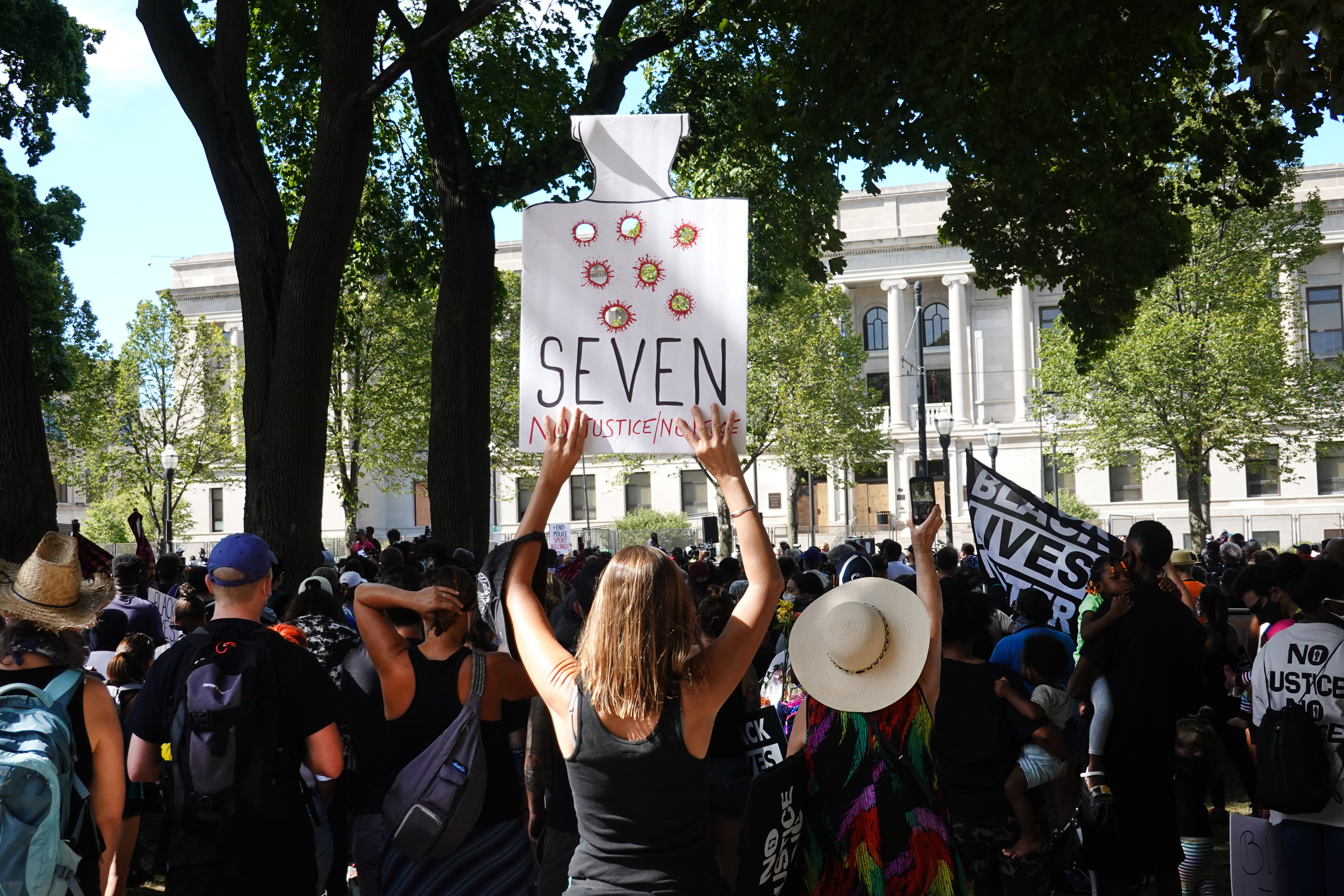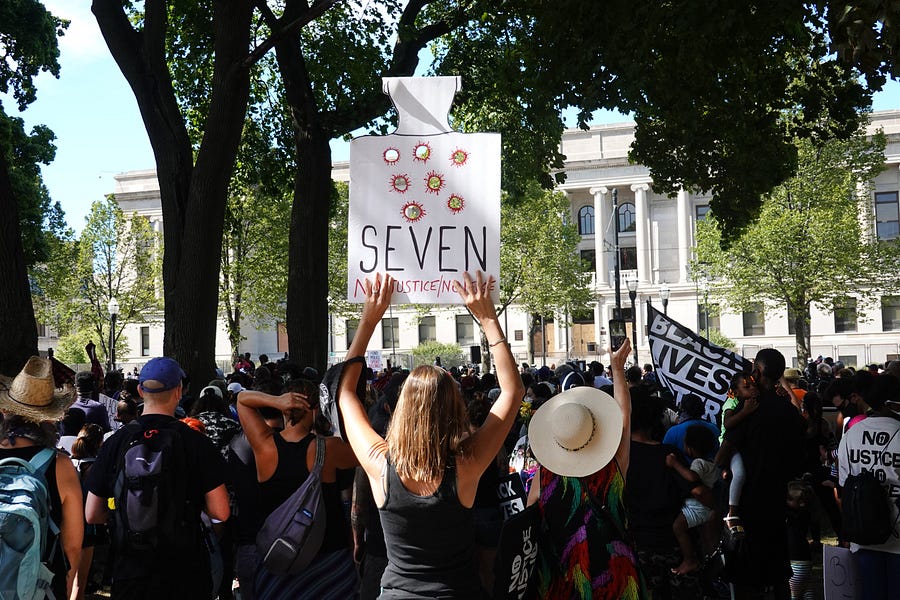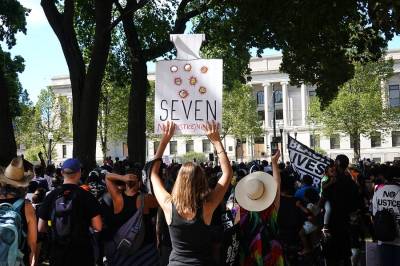For an event described by the New York Times as a “peaceful protest,” the words are jarring: "[I]f you kill one of us, it’s time for us to kill one of yours," a speaker thundered toward the end of last weekend’s Justice for Jacob rally in Kenosha, Wisconsin. Several apparently incurious news reports referred to the speaker as an unidentified man who "took the microphone" toward the end of the program. However, through a Facebook post, The Dispatch identified the scheduled speaker as Maruwa Ferrell, president of one of the host organizations of the rally listed on a Facebook page announcing the event: the UNIA-ACL Sir Isaiah Morter Division 401 Chicago, a chapter of the Universal Negro Improvement Association and African Communities League.
On August 29, Jacob Blake's family and supporters held the “Justice for Jacob” event in Kenosha, the town where Blake was shot seven times in the back by police during his arrest in mid-August. The Kenosha News reported that most "speakers were more focused on social justice and not physical revenge," but the newspaper initially headlined its story on the rally with Ferrell's inflammatory words. Despite the sensational nature of the threatening words, the story did not get much attention until Daniel Thompson, an editor at the newspaper (and according to Thompson, the only black full-time staff member) resigned when the paper refused to change the headline. Thompson asserted that the headline distorted the overall peaceful tone of the rally. (The paper subsequently changed the headline after Thompson's resignation.)
Maruwa Ferrell was enthusiastically introduced at the rally by Jacob Blake’s uncle Justin Blake (who acted as emcee for the event) only as “my president,” an apparent reference to Ferrell’s position with the Chicago UNIA. Ferrell warned his listeners that his words would not be welcomed by all, and he did not disappoint. Ferrell’s “it’s time for us to kill one of yours” threat was met with a muted reaction by the crowd, but he was permitted to finish his remarks.
Farrell’s group, the UNIA-ACL Sir Isaiah Morter Division 401 Chicago, describes itself as “committed to the economic, political and social liberation of African people.” The organization emphasizes self-sufficiency for people of African descent. The group’s Facebook page posts various memes such as “None of my ancestors died for me so I can vote for the white people that killed them!” and “Them: Black Lives Matter. Me: Race First / Black Power. It’s a Difference!” Other Facebook posts boost black-owned businesses and the UNIA’s charitable endeavors.
Though former Kenosha News editor Daniel Thompson said that Ferrell’s remarks reflected “one outlier falling within a flood of positive ones,” Ferrell was not the only speaker to use more confrontational language. Fred Hampton Jr., chairman of the Black Panther Cubs (and son of the late Fred Hampton, chairman of Illinois’s Black Panther Party chapter and deputy chairman of the national party) also spoke at the rally. Hampton told the crowd there’s a difference between “riot” and “revolution” and that they needed to “keep the heat on the streets.” Though Hampton said the odds were against the movement, he invoked the example of the communist resistance in Nicaragua, saying, “We got to say what the Sandinistas down in Latin America, the will of the people is greater than the man’s technology.”
The Chicago UNIA posted video of the Ferrell's controversial contribution to the rally on its own Facebook page but removed it after The Dispatch attempted to reach out for comment. When The Dispatch noted the video’s removal in a follow up message again requesting a comment from the UNIA, the only response from the group was a cryptic thumbs-up emoji. Messages seeking comment from Ferrell, and from Tanya McLean, Blake family friend and one of the rally organizers, on Ferrell’s inclusion in the rally and his inflammatory words, went unanswered.
Photograph by Scott Olson/Getty Images.







Please note that we at The Dispatch hold ourselves, our work, and our commenters to a higher standard than other places on the internet. We welcome comments that foster genuine debate or discussion—including comments critical of us or our work—but responses that include ad hominem attacks on fellow Dispatch members or are intended to stoke fear and anger may be moderated.
With your membership, you only have the ability to comment on The Morning Dispatch articles. Consider upgrading to join the conversation everywhere.